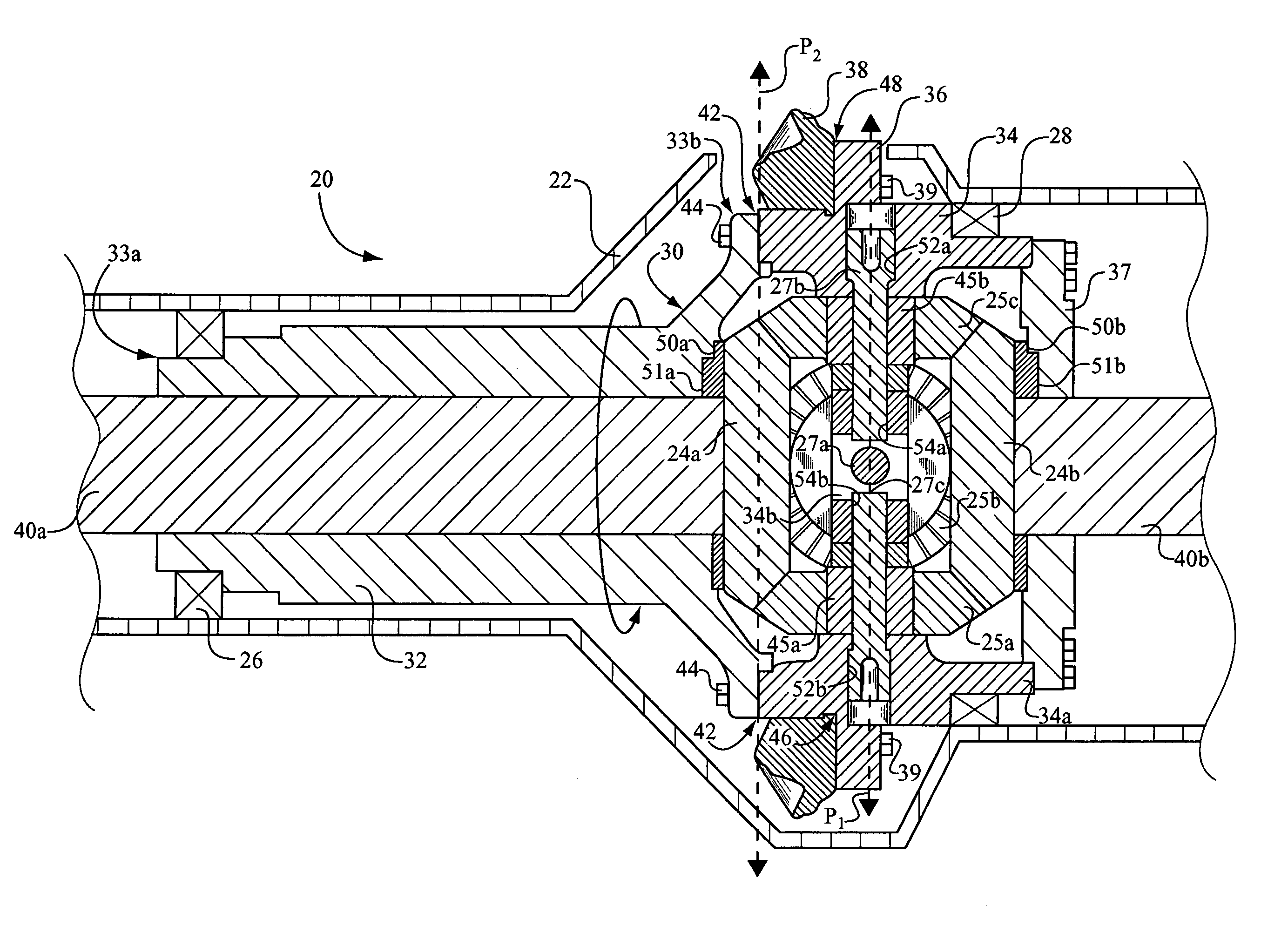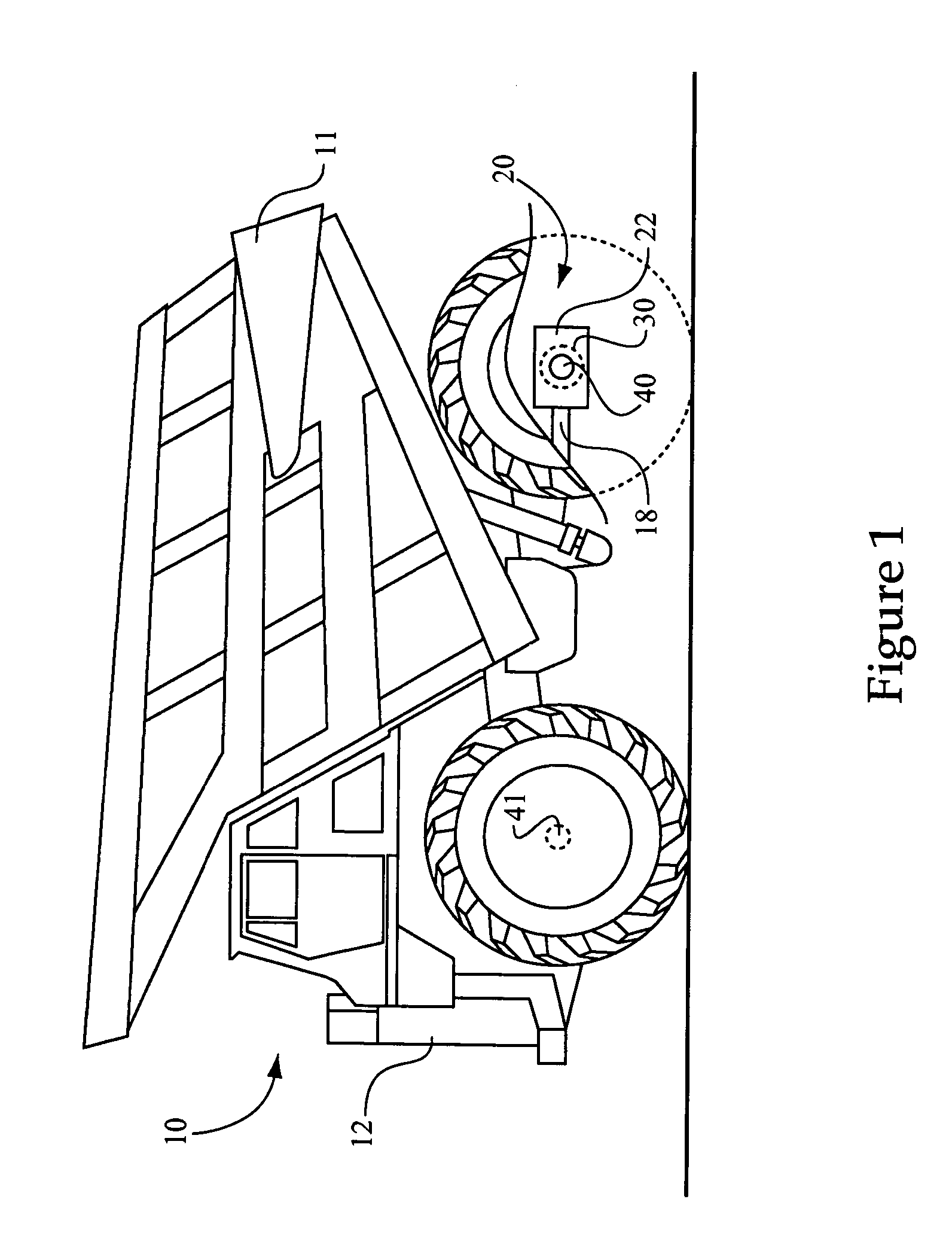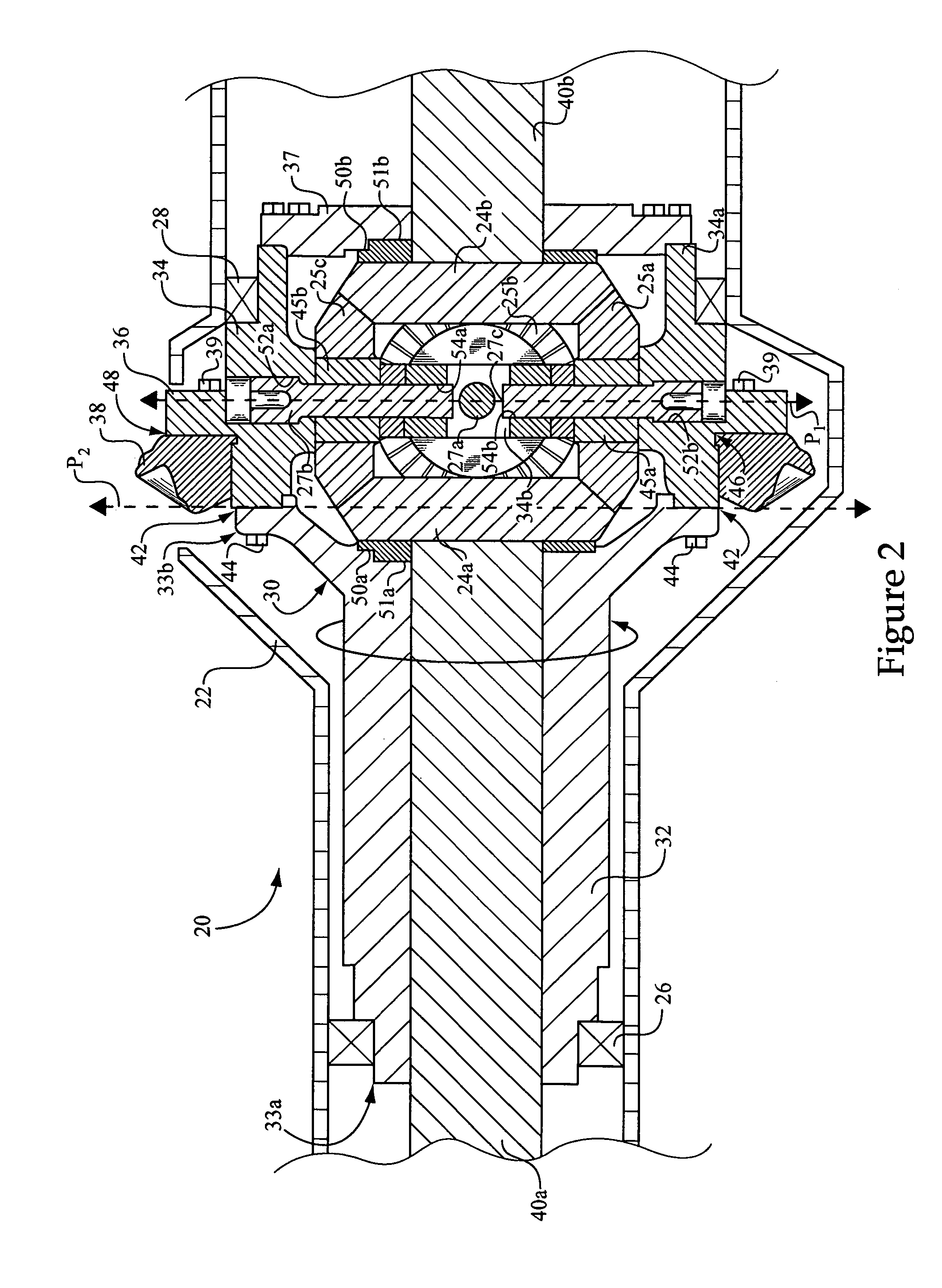Differential assembly for a machine
a technology of differential assembly and machine, applied in the direction of differential gearing, belt/chain/gearing, differential gearing, etc., can solve the problems of series of challenges, limited design in its robustness and overall structural integrity, and the components of the powertrain, in particular the differential assembly, can be subjected to extremely high loads
- Summary
- Abstract
- Description
- Claims
- Application Information
AI Technical Summary
Benefits of technology
Problems solved by technology
Method used
Image
Examples
Embodiment Construction
[0017]Referring to FIG. 1, there is shown a work machine 10 according to the present disclosure. Work machine 10 is shown in the context of an off-highway truck including a work machine body or frame 12 having rear and front axles 40 and 41 coupled therewith, respectively, and a payload bin 11. It should be appreciated, however, that a wide variety of both off-highway and on-highway work machines will benefit from the teachings of the present disclosure. Essentially any mobile, wheeled work machine having a differential assembly in the powertrain in accordance with the present disclosure may fall within its scope. Thus, such work machines as wheel loaders, scrapers, motor graders, on-highway trucks and even passenger vehicles are contemplated herein. Work machine 10 includes a driveshaft 18 coupled with a differential assembly, such as a rear differential assembly 20, having an outer differential housing 22 coupled to frame 12 and an inner differential housing 30 rotatably supported...
PUM
 Login to View More
Login to View More Abstract
Description
Claims
Application Information
 Login to View More
Login to View More - R&D
- Intellectual Property
- Life Sciences
- Materials
- Tech Scout
- Unparalleled Data Quality
- Higher Quality Content
- 60% Fewer Hallucinations
Browse by: Latest US Patents, China's latest patents, Technical Efficacy Thesaurus, Application Domain, Technology Topic, Popular Technical Reports.
© 2025 PatSnap. All rights reserved.Legal|Privacy policy|Modern Slavery Act Transparency Statement|Sitemap|About US| Contact US: help@patsnap.com



